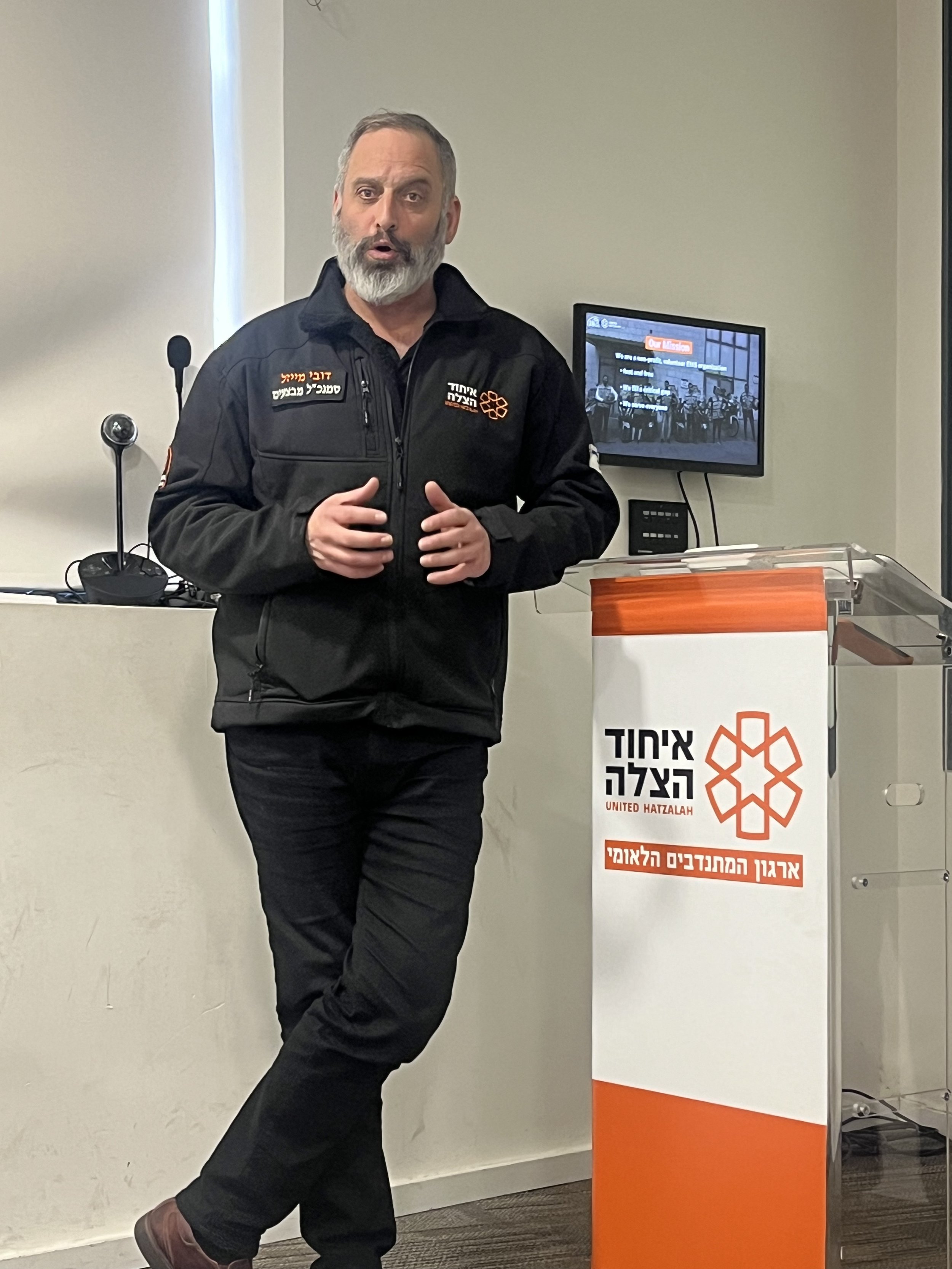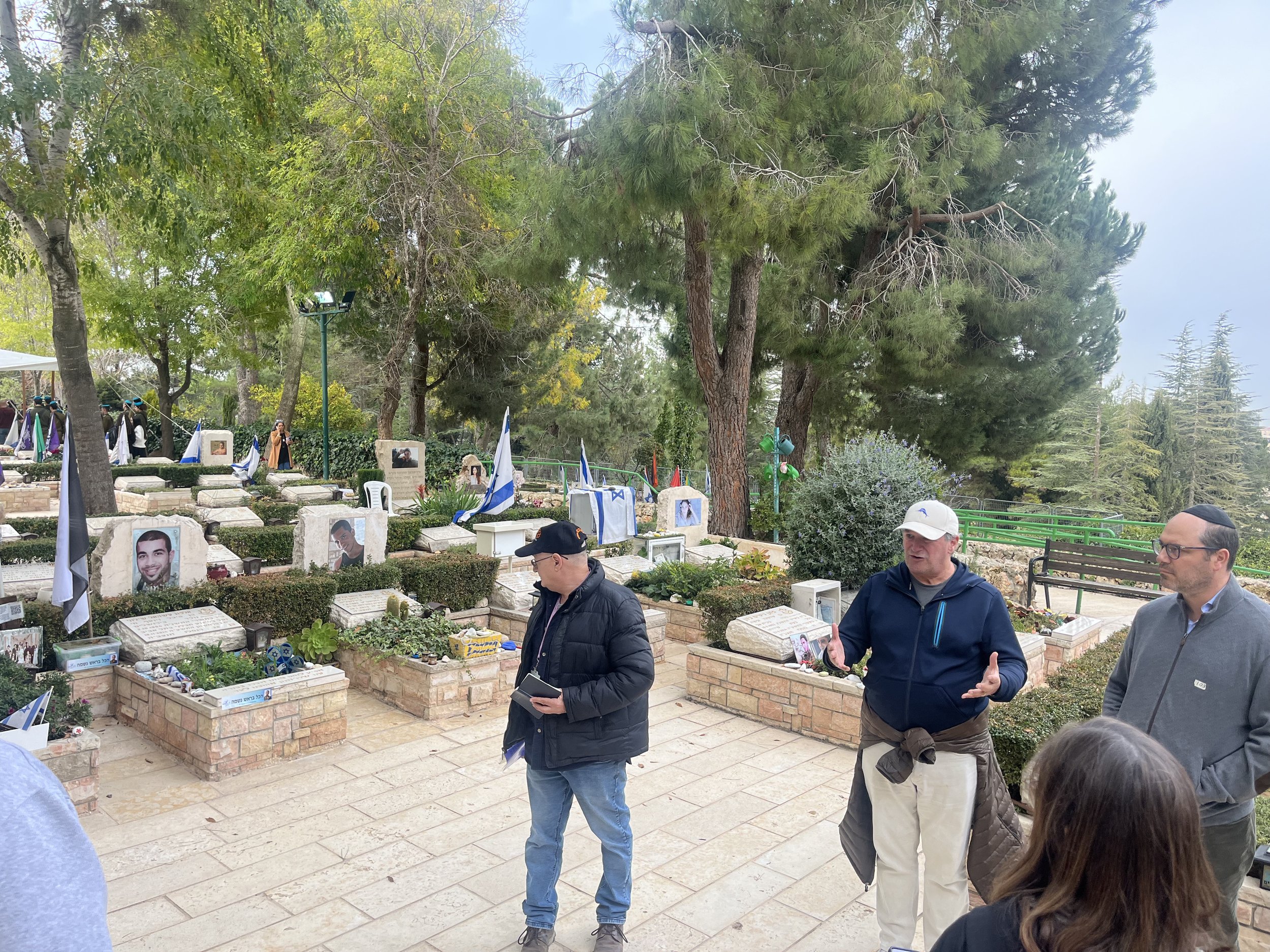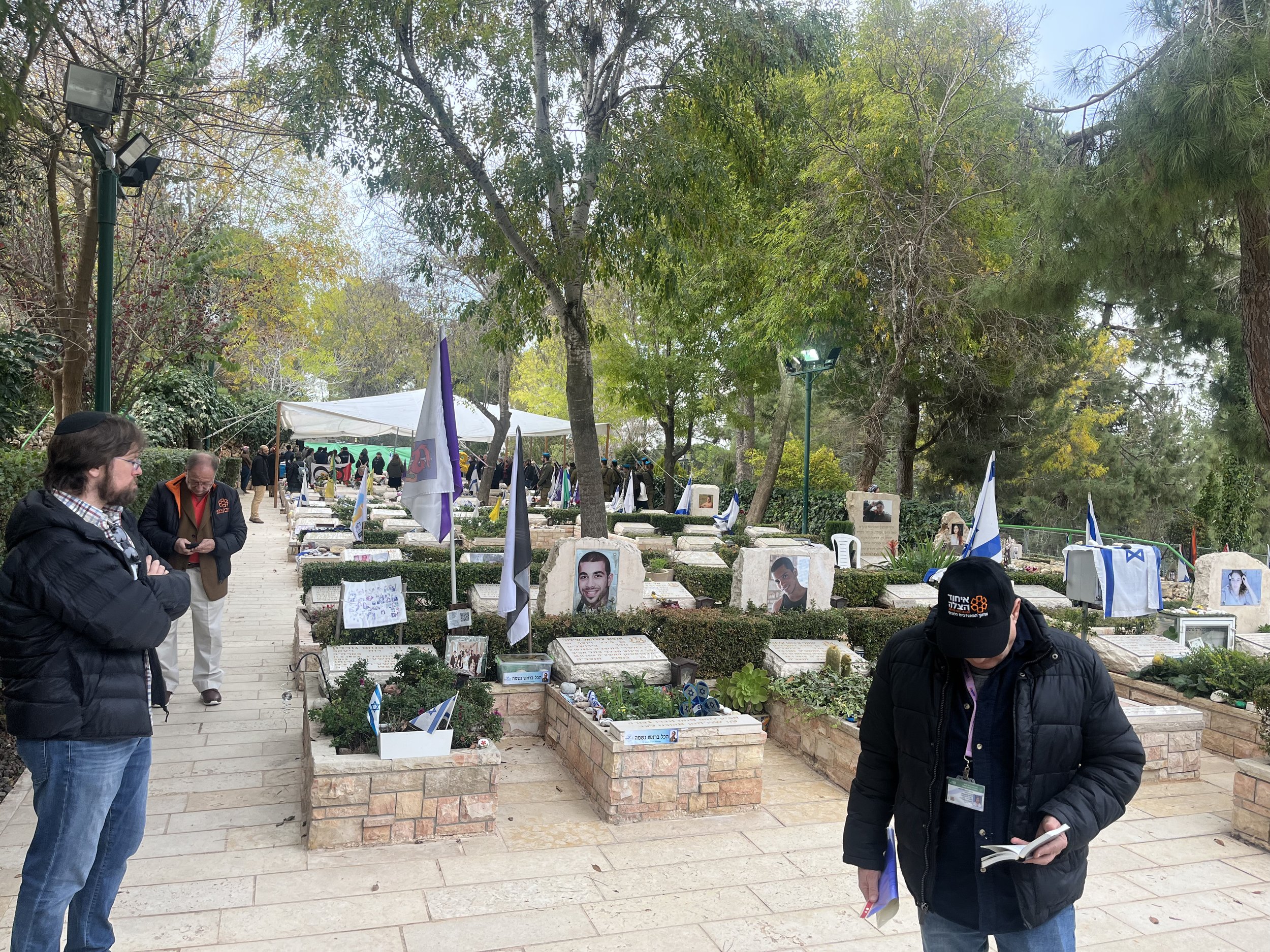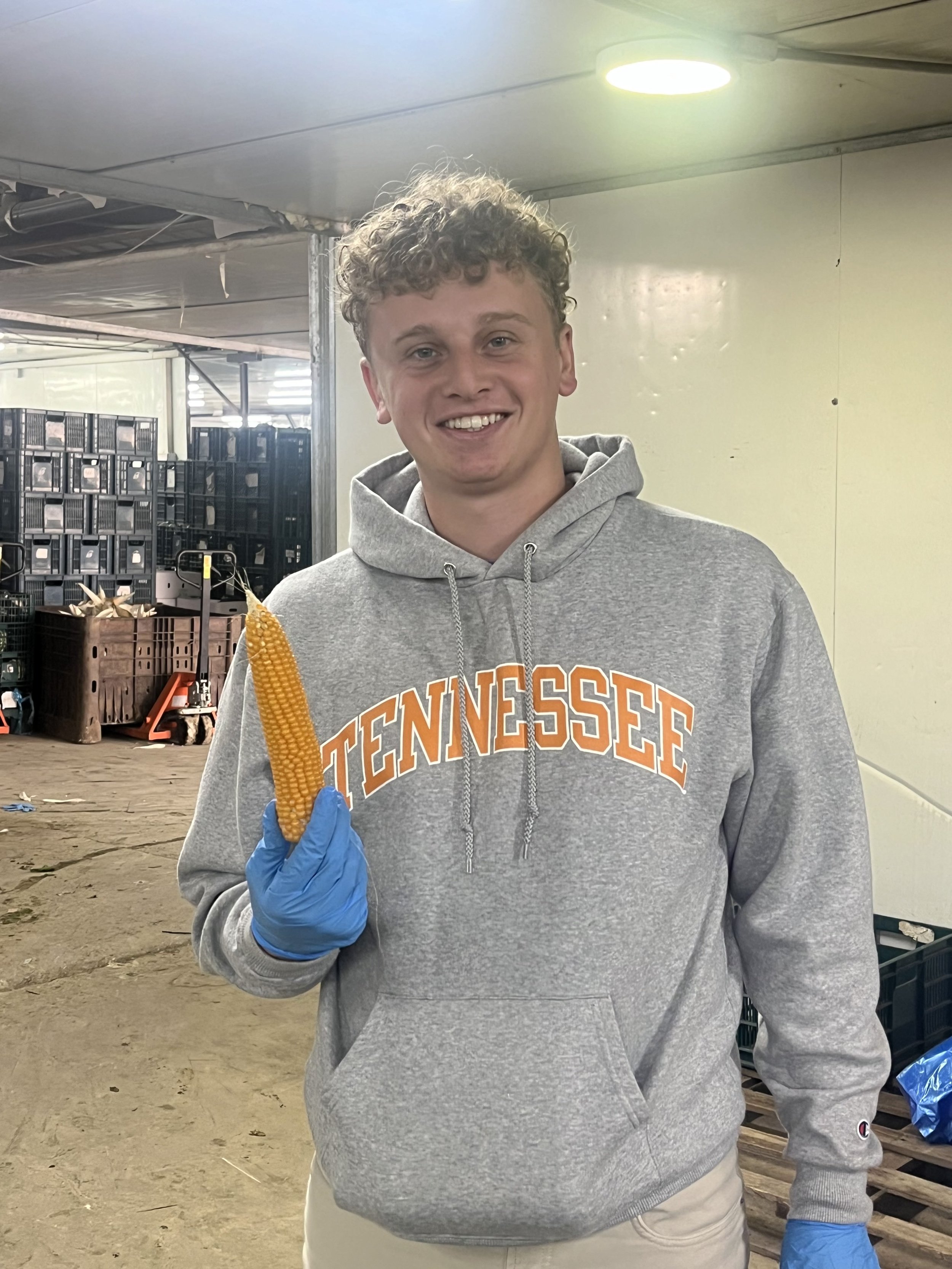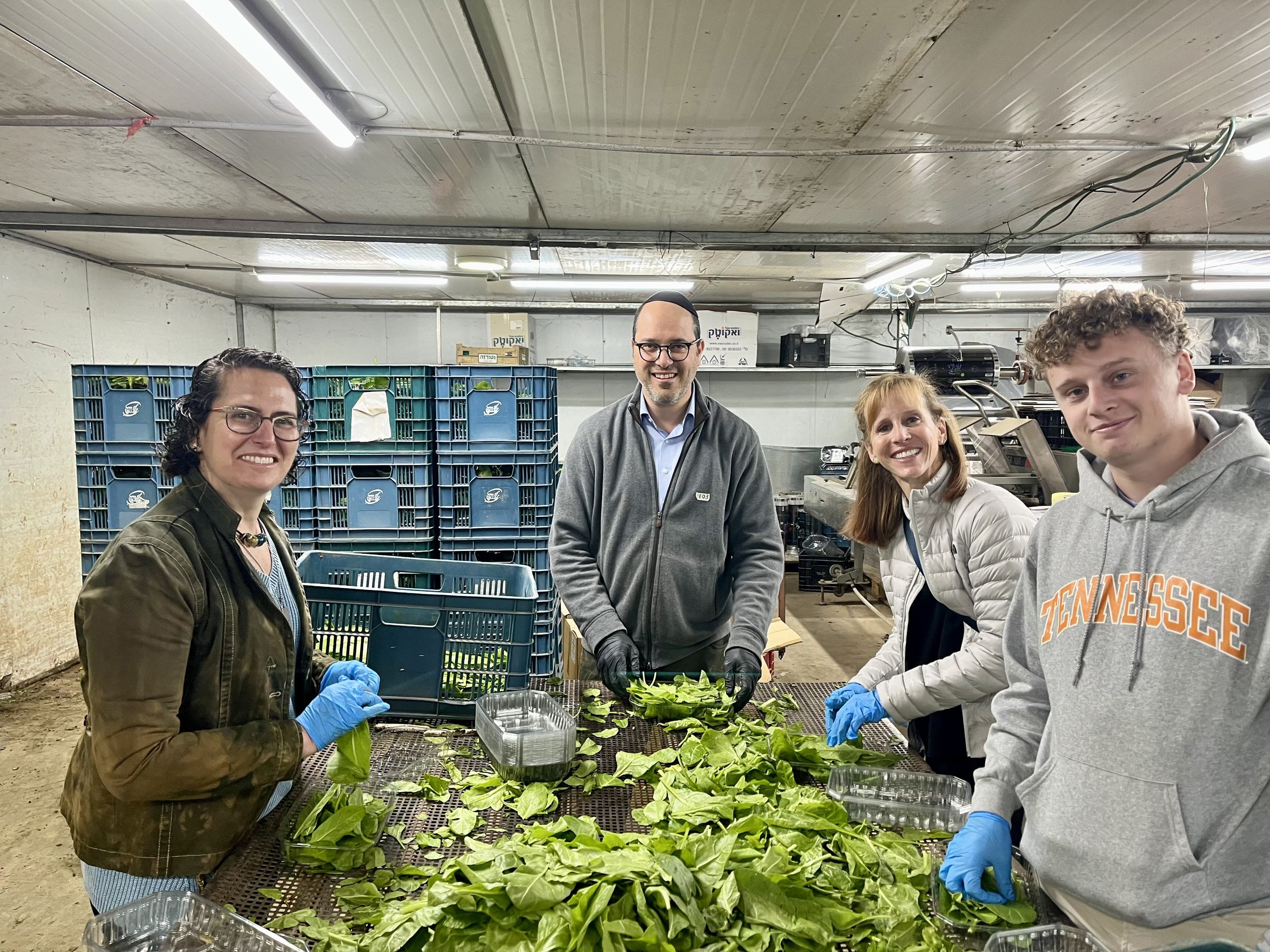Day 3. January 17th
ENTRY 1
We set out in the morning heading north from Jerusalem to Moshav Azaria which is just east of Tel Aviv. We went to a packing plant for produce and agricultural products. Because of the war, many factory workers are serving on the front lines and in the military and are not able to do their everyday jobs. Additionally, many Thai workers who come to Israel and often work in the agricultural and farming fields fled back to Thailand after October 7. As a result, volunteers are heavily relied upon to carry out jobs otherwise done by those who are currently absent. We spent roughly 3 hours cutting, packaging, stacking and organizing broccoli, romaine lettuce, dill, mint, corn, and spinach. It was gratifying to contribute, even if just a small amount, and we chuckled at the very little prep we all received (here, wear these gloves and don’t put your hands or arms in any of the machines—no waivers, just get to it!).
We make our way, now, back towards Jerusalem to the Ichud Hatzalah headquarters for a tour and explanation about their vital work. This is the ground zero for all ambulances and medical emergency response in Israel. One of our trip participants, Bernie Pargh, and his son Franklin, have generously donated an armored ambulance and we will have a dedication. Israel learned, unfortunately, on October 7 how important it is to have armored ambulances available.
ENTRY 2
We made our way back to Jerusalem, to the headquarters for Ichud (United) Hatzalah (UH), an amazing non-profit, volunteer EMS organization that revolutionized the ability to offer fast and free life-saving care for every one of Israel’s citizens. UH has over 7000 volunteers all over Israel ready at any moment (their average response time is 90 seconds) to be alerted and respond to an emergency near them. Think Uber for 911. Example: I have a medical emergency. In the US, I call 911 and wait for the ambulance to arrive, and afterward, receive a huge bill for the service. In Israel, you can call the equivalent of 911 and Magen David Adom might respond, for which you will be charged, or you can call 1221 and UH will send a signal to its 7000 volunteers country-wide, and the closest responder acts, and it’s entirely free. They have every manner of transportation to serve the community: ambulances, all-terrain vehicles, boats, ambu-bikes, and armored ambulances, which is what the Nashville Jewish community and Temple members, Bernie and Maria Pargh generously donated. It was a special treat to share the dedication with Bernie and his son, Franklin, on this trip.
On October 7, UH responded to the tragedy in the south. Two of the volunteers lost their lives, a Christian who went to the Nova festival to save lives, and the second, a volunteer from the Shin Bet security agency. What is unique about UH is that it not only serves all Israelis regardless of religious background, but the volunteers represent the totality of Israel’s population: Jews, Christians, Druze, and Arabs.
Our presenter, Dovi, said that he responded to over 50 suicide bombings in his tenure at UH and nothing prepared him for what he encountered and what happened on the morning of October 7. As he drove from the synagogue where he was celebrating Simchat Torah and Shabbat that morning with his community, he looked around at every other car on the road (which would be very abnormal for Shabbat morning in Jerusalem when there would otherwise be no cars on the road) and every driver was someone in uniform heading to check in to their unit or base due to the attack in the south. And Dovi thought, “This is just like the Yom Kippur war.”
There were 3000 terrorists that had infiltrated Israel. It seemed impossible. But the calls kept coming into UH. They sent as many volunteers as possible, and as much equipment as possible. 1000 volunteers went south that day. They saved hundreds and hundreds of lives. The numbers killed would have easily grown by 400 or more had the UH volunteers not risked their lives and shown up. Over 2000 victims got to hospitals via private car that day because of UH volunteers. “Such is the power and culture of the people of Israel to take care of your neighbor and to jump into the fire to help,” said Dovi. Indeed, it is. Am Yisrael Chai.
We left United Hatzalah and traveled a short distance to Mt. Herzl, the cemetery that serves as the resting place for Israel’s greatest leaders such as Yitzhak Rabin and Golda Meir. It is also the cemetery where those fallen in all of Israel’s battles and wars are buried, as well as some victims of terror. And now, there is a new area dedicated to the burial of those who have fallen in military service on and since October 7. Our guide personally knew many of those who had been buried and had been to too many funerals to speak about it without tearing up. Our visit happened to coincide with the funeral for a young soldier and so we stayed and honored his life as a way of paying honor to all the lives lost thus far. We read the gravestones of those there. Lives lost too soon. Lives that were born in 2000, 2002, 2003, 1999, etc. Just kids themselves. And we cried for the sacrifice Israel must pay to exist. And we cried for the hostages who we pray are still alive and will come home, including the two just announced no longer living from Kibbutz Be’eri. And we cried for all those parents who sent their children to the frontlines in an act of unbelievable sacrifice and faith, as the poet Yonatan Alterman so eloquently wrote, “as the silver platter upon which the State of Israel is served up to the rest of us.”
